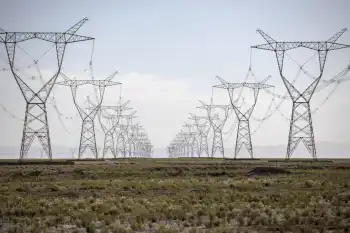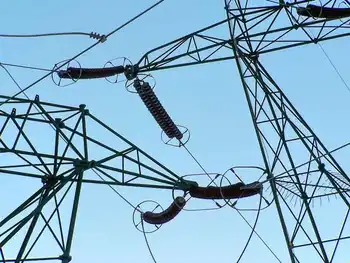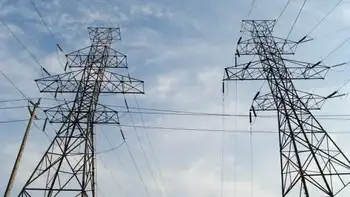Ukraine Electricity Exports resume to the European grid, starting with Moldova and expanding to Poland, Slovakia, and Romania, signaling energy security, grid resilience, added megawatts, and recovery after Russian strikes with support and renewables.
Key Points
Ukraine Electricity Exports are resumed sales of surplus power to EU neighbors, reflecting grid recovery and resilience.
✅ Initial deliveries to Moldova; Poland, Slovakia, Romania to follow.
✅ Extra capacity from repairs, warmer demand, and renewables.
✅ Exports may vary amid ongoing Russian strikes risk.
Ukraine began resuming electricity exports to European countries on Tuesday, its energy minister said, a dramatic turnaround from six months ago when fierce Russian bombardment of power stations plunged much of the country into darkness in a bid to demoralize the population.
The announcement by Energy Minister Herman Halushchenko that Ukraine was not only meeting domestic consumption demands but also ready to restart exports to its neighbors was a clear message that Moscow’s attempt to weaken Ukraine by targeting its infrastructure did not work.
Ukraine’s domestic energy demand is “100%” supplied, he told The Associated Press in an interview, and it has reserves to export due to the “titanic work” of its engineers and international partners.
Russia ramped up infrastructure attacks in September, when waves of missiles and exploding drones destroyed about half of Ukraine’s energy system. Power cuts were common across the country as temperatures dropped below freezing and tens of millions struggled to keep warm.
Moscow said the strikes were aimed at weakening Ukraine’s ability to defend itself, and has also moved to reactivate the Zaporizhzhia plant through new power lines, while Western officials said the blackouts that caused civilians to suffer amounted to war crimes. Ukrainians said the timing was designed to destroy their morale as the war marked its first anniversary.
Ukraine had to stop exporting electricity in October to meet domestic needs.
Engineers worked around the clock, often risking their lives to come into work at power plants and keep the electricity flowing. Kyiv’s allies also provided help. In December, U.S. Secretary of State Antony Blinken announced $53 million in bilateral aid to help the country acquire electricity grid equipment, and USAID mobile gas turbine plant support, on top of $55 million for energy sector support.
Much more work remains to be done, Halushchenko said. Ukraine needs funding to repair damaged generation and transmission lines, and revenue from electricity exports would be one way to do that.
The first country to receive Ukraine’s energy exports will be Moldova, he said.
Besides the heroic work by engineers and Western aid, warmer temperatures are enabling the resumption of exports by making domestic demand lower, even as Germany’s coal generation shapes regional power flows.
Renewables like solar and wind power also come into play as temperatures rise, taking some pressure off nuclear and coal-fired power plants.
But it’s unclear if Ukraine can keep up exports amid the constant threat of Russian bombardment, with any potential agreement on power plant attacks still uncertain.
“Unfortunately now a lot of things depend on the war,” Halushchenko said. “I would say we feel quite confident now until the next winter.”
Exports to Poland, Slovakia and Romania are also on schedule to resume, he said.
“Today we are starting with Moldova, and we are talking about Poland, we are talking about Slovakia and Romania,” Halushchenko added, noting that how much will depend on their needs.
“For Poland, we have only one line that allows us to export 200 megawatts, but I think this month we will finish another line which will increase this to an additional 400 MW, so these figures could change,” he said.
Export revenue will depend on fluctuating electricity prices in Europe, where stunted hydro and nuclear output may affect recovery. In 2022, while Ukraine was still able to export energy, Ukrainian companies averaged 40 million to 70 million euros a month depending on prices, Halushchenko said.
Related News












